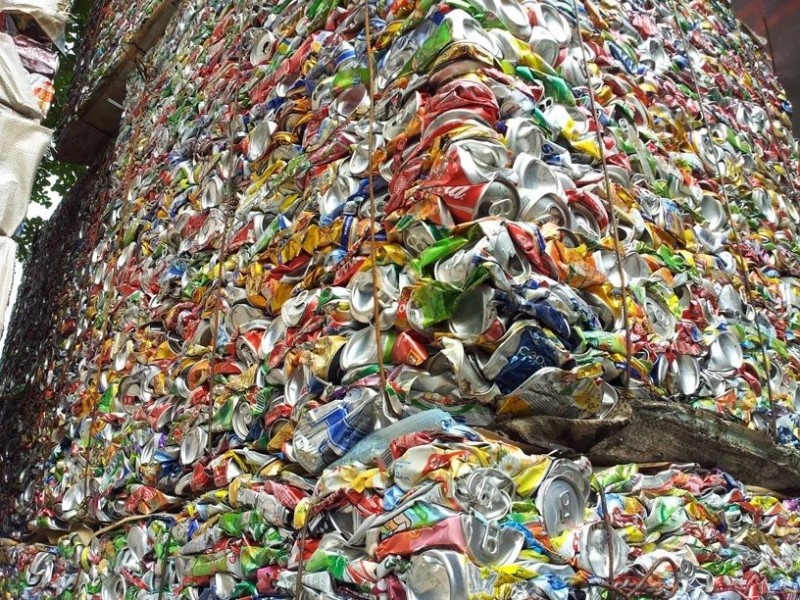From waste to wealth: The journey of aluminium cans scrap
Team AL Circle
2024-04-10
Did you know recycling an aluminium beverage can save enough energy to power a TV for three hours? It is a good enough reason to start recycling aluminium cans, even if you do not know about its plethora of advantages. In today's world of sustainability, your waste beer and soda cans are considered priceless. But why are the waste aluminium cans deemed valuable, and how can they be converted into wealth? There is an increasing need for aluminium in different sectors, so secondary aluminium production is now necessary. Recycling aluminium beverage cans will help the industry meet the demand while reducing energy consumption and GHG emissions.

How are waste aluminium cans turned into secondary aluminium?
Recycling aluminium cans is an energy-efficient process involving seven steps.
Step 1: The aluminium cans are collected and sorted after the trash reaches the sorting stations. To facilitate the sorting process, it is important to discard aluminium cans carefully.
Step 2: To reduce the volume, these cans are shredded or cut into smaller pieces.
Step 3:Once the aluminium becomes more manageable, the aluminium surface is cleaned using chemicals. This step is essential to start the recycling process.
Step 4:The aluminium shreds are piled into furnaces and melted at 750 degrees Celsius or higher to obtain the molten metal.
Step 5:Different by-products created during the melting process are removed using different chemical formulas or gases, such as nitrogen and chlorine, from the molten aluminium.
Step 6:Depending on the use and need for secondary aluminium, various metals, such as zinc, copper, or silicon, are added to the molten aluminium to create aluminium alloys.
Step 7:Finally, the molten aluminium is moulded to form ingots/slabs and transported to different destinations.
Aluminium can recycling: Benefits beyond sustainability
Aluminium beverage cans recycling is beneficial for the environment, but its advantages transcend ecological aspects. It boosts the circular economy and plays a vital role in the job market. According to reports, aluminium cans recycling can generate 103,800 jobs in the U.S. through all seven steps mentioned above. Additionally, selling recycled aluminium can generate a revenue of 1.6 billion USD for the U.S.
Focus on aluminium cans recycling in COP28
The 28th Conference of Parties held in 2023 in Dubai also spoke about aluminium beverage can recycling. COP28 set out a "global call to action" to the leaders of the aluminium recycling industry to reach an 80% recycling rate for aluminium can recycling by 2030. It also set a plan for the next two decades from 2030, i.e., to achieve a 100% aluminium recycling rate by 2050. It will be a significant step towards decarbonising the aluminium industry and converting waste aluminium cans into valuable and sustainable secondary aluminium.
How can you, as a consumer, support aluminium cans recycling?
While actors in aluminium cans recycling are making efforts to reach a 100% recycling rate by 2050, household consumers can play a pivotal role in making it a reality. Here are a few things you can do as a consumer to help with aluminium can recycling:
- Before throwing away the beverage cans, rinse them to remove residual liquid.
- Do not crush or reshape the cans before tossing them in the garbage. Cans with intact shapes are easier to sort.
- Peel off any plastic or paper labels attached to the can to avoid contaminating the recycling process.
- Waste segregation is also an effective way of facilitating aluminium can recycling. You can go further and discard aluminium beverage cans separately from other recyclables.
- Finally, you can encourage friends and family to follow these tips and improve the recycling process of aluminium beverage cans from the grassroots level.
According to the International Aluminium Institute, 70% of aluminium cans are recycled and made into new products. Unfortunately, this is not enough to reduce global warming per the Paris Agreement and stick to the 1.5-degree Celsius threshold. Therefore, some serious action must be taken to increase the recycling rates' sustainability. However, countries like Brazil are progressing by attaining 100% aluminium cans recycling rates.
Categories
Raw Materials
Scrap
Consumables
Primary Aluminium
Secondary Aluminium
Equipment
Technology
Downstream Products
Finished Products
Utilities
Services
Others
Recent Blogs
Subscribe to newsletter
Connect with us











